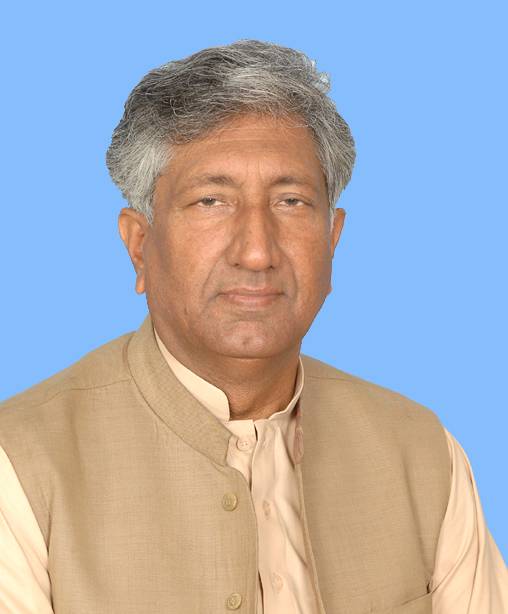Pakistan Climate Change Challenges: Restoration of wetlands can mitigate flood risks
Shares

ISLAMABAD, (APP): Pakistan Climate Change Challenges: Restoration of wetlands can mitigate flood risks
Pakistan Muslim League (N) Parliamentarian Muhammad Mueen Watto, said on Tuesday that the flood risk could be mitigated with effective management of river basins including the Indus and restoration of wetlands in the country.
"Such measures could also increase underground water resources, which are fast depleting, he said while addressing media briefing here in the Climate Change Ministry.
He said, "Of all the devastating impacts of climate change being experienced by the country, floods are proving to be more destructive, causing socio-economic losses of worth billions of rupees,".
He said that the present government was aware of the climate change-induced flood risk in the country and was taking all-out practical measures to mitigate its impacts on the lives of people, their livelihoods, public infrastructure, particularly agriculture.
Talking about recent visit to the Yangtze River basin in China, Mueen Watto said the main objective of the visit was to see how the Chinese manage flood plains and wisely use floods for economic and environmental benefits.
It was surely amazing the way China has managed to mitigate the flood risk in the Yangtze River basin spread over catchment area of 1.8 million square kilometers. This offers great viable lesson for Pakistan to make the flood-prone Indus River basin the flood-proof river basin in the light of the Chinese experience, he elaborated.
He said, "We also learnt during our Chinese visit that effective river basin management and restoration of wetlands can help significantly to mitigate flood risk being faced by Pakistan,".
With a total length of more than 6,300 kilometers and a total descent of more than 5,400 meters, the Yangtze River is the third longest river in the world and lone longest in China, has sustained human civilization for millennia, with over one third of China's population living in its watershed.
Muhammad Mueen Wattoo and Abdul Qadeer were part of the 10-member delegation, who visited the Yangtze River basin for taking stock of the measures taken by the Chinese government for the river flood-proof and how these measures can be replicated in Pakistan for addressing the escalating and aggravating flood risk in Pakistan.
The other members of the delegation included Inspector General Forests of the climate change ministry Syed Mahmood Nasir, Brigadier Muhammad Babar Wazarat of Research and Support Directorate, General Headquarters Rawalpindi, LT. Colonel Kamran Akhtar of Research & Support Directorate, General Headquarters, Rawalpindi,Additional Secretary Punjab Wildlife and Fisheries Department Shahid Rasheed Awan, Sindh Irrigation Department's Superintending Engineer Abdul Qadir Palijo,WWF _ Pakistan's Climate Change and Water expert Masood Arshad and others.
Secretary Climate Change Ministry, Syed Abu Ahmad Akif, said that Pakistan has been declared water-stressed country with storage capacity of only 30 days. On the other hand, contrast, "carryover capacity" in other countries ranges from 200 days in India to 1,000 days in Egypt, he said.
Syed Abu Akif said that what is more alarming is that the storage capacity is decreasing day by day due to sediment build-up in the existing reservoirs, rivers and other water bodies.
The climate change secretary highlighted, "The country desperately needs more reservoirs to increase its water storage capacity, and called for conservation awareness campaigns, the introduction of drought-tolerant crop varieties and more economical irrigation.
Giving briefing about the study visit, the climate change ministry's Inspector General Forest Syed Mahmood Nasir said that on the advice of the Ramsar Advisory Mission (Ramsar Convention Secretariat) a ten member delegation from Pakistan visited the reaches of the Yangtze River and met key Chinese experts and site managers from June 1 to June 10.
He said further that the visit also included meetings with State Forestry Administration and President UICN in his office at Beijing.
Preparatory meetings were held with IUCN regional Director Asia as well as the CR Pakistan.
